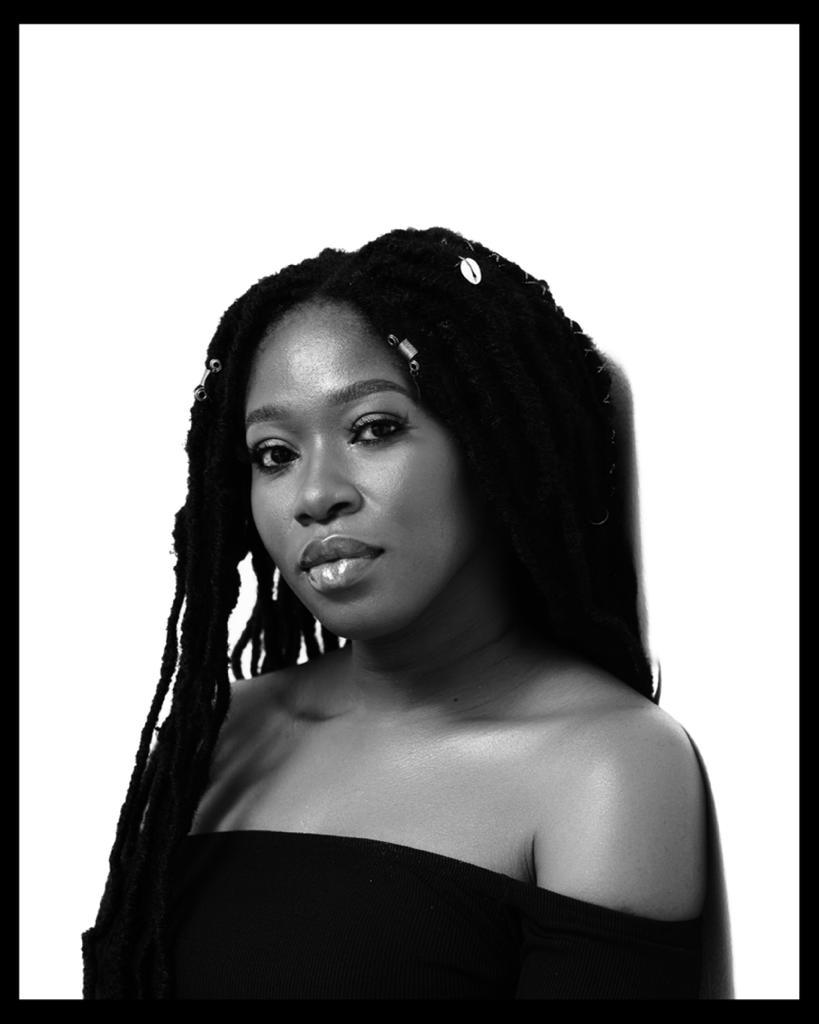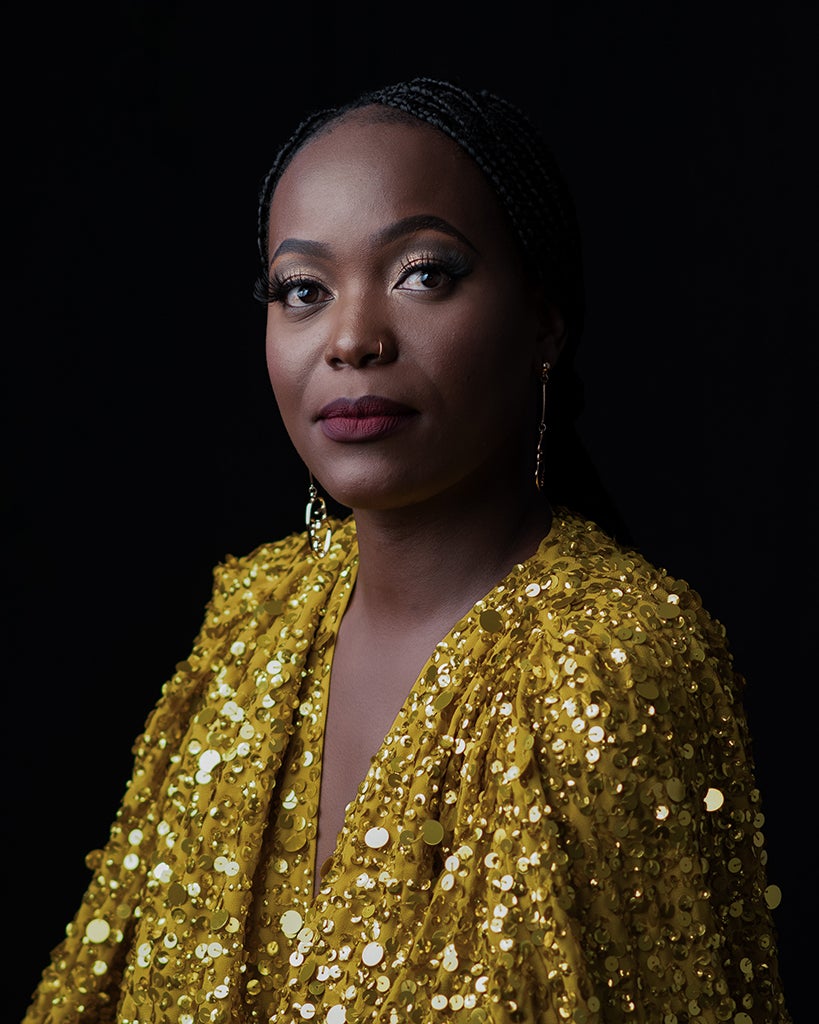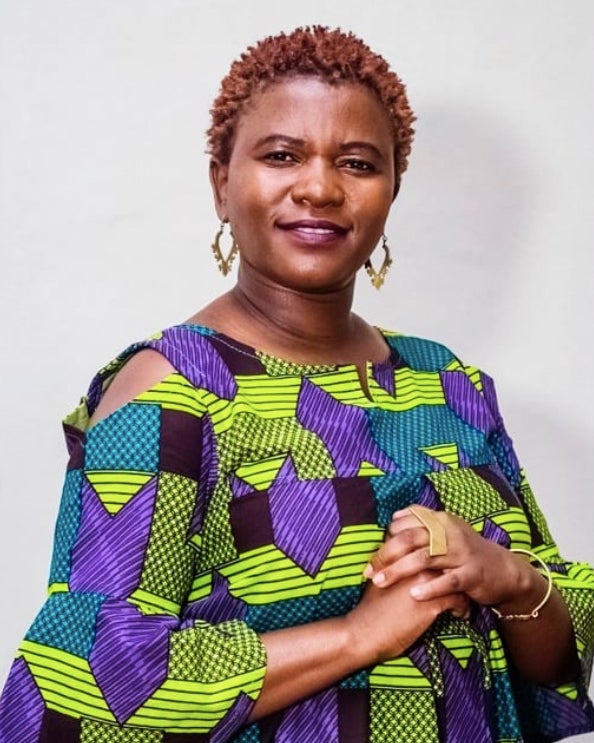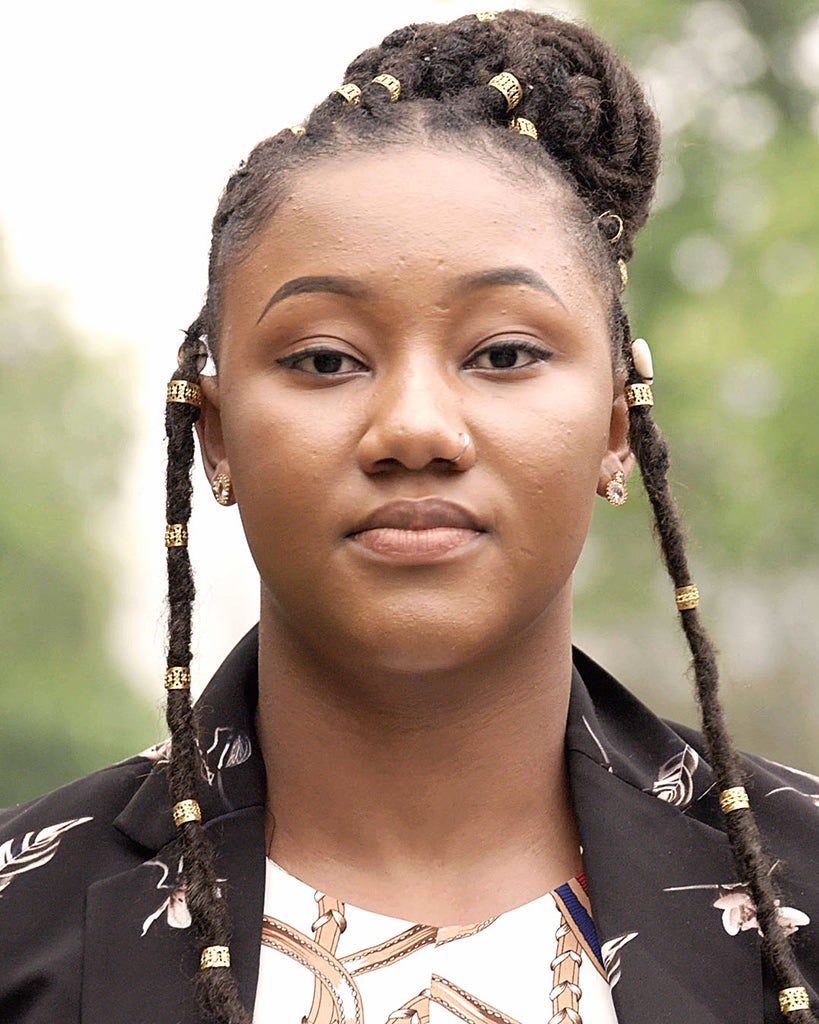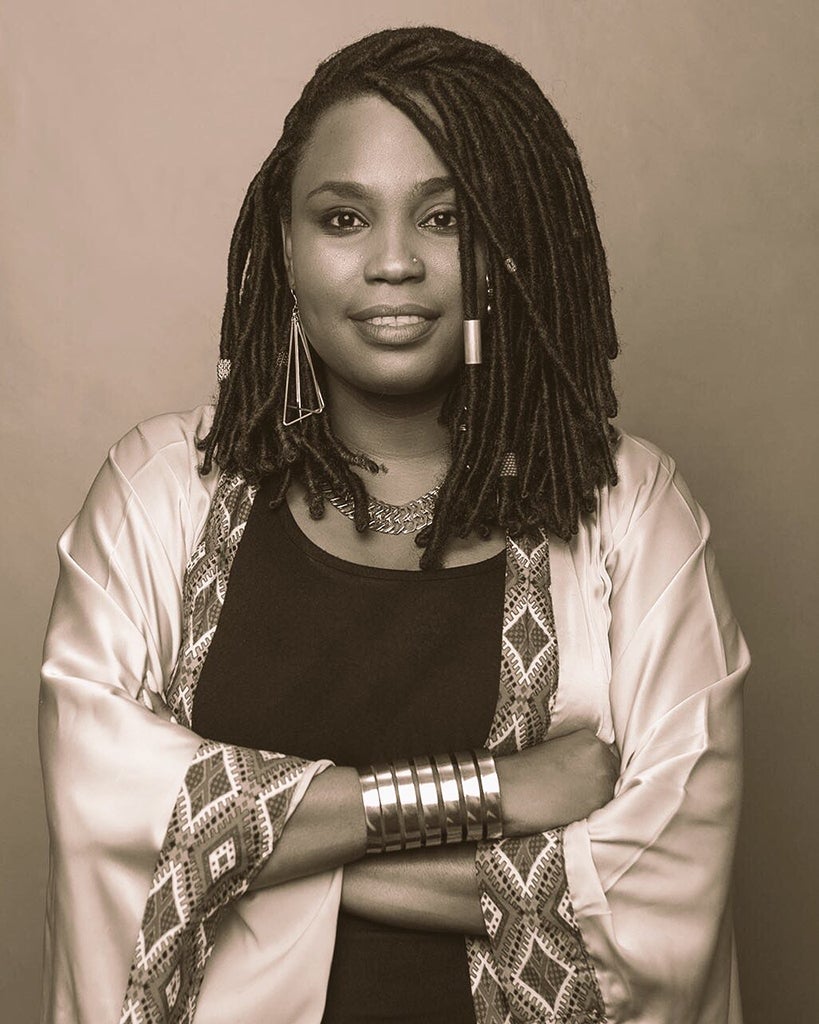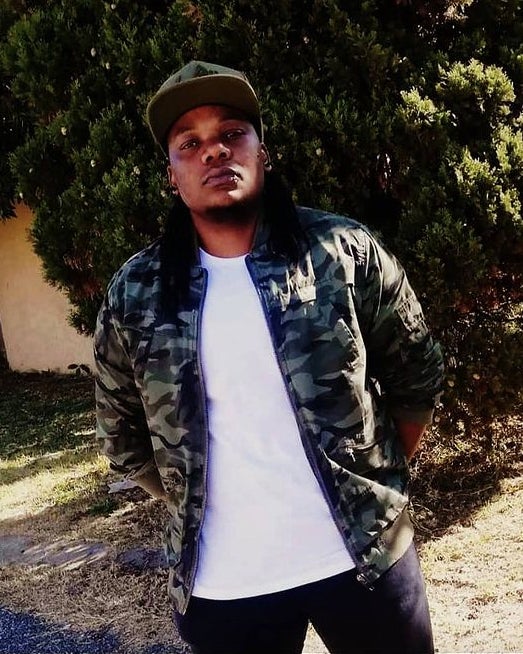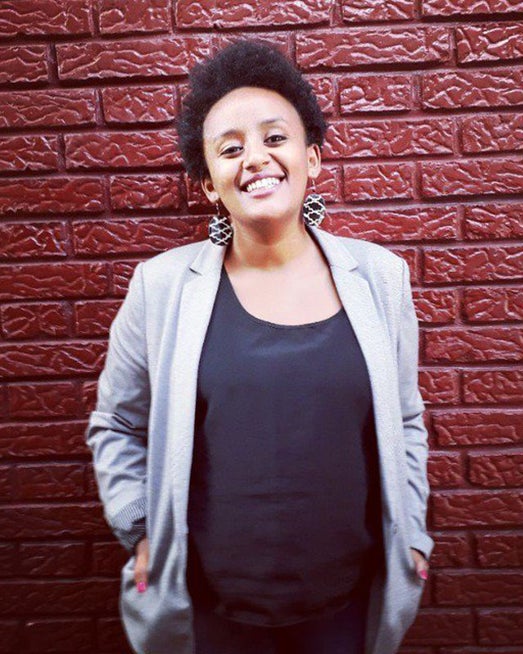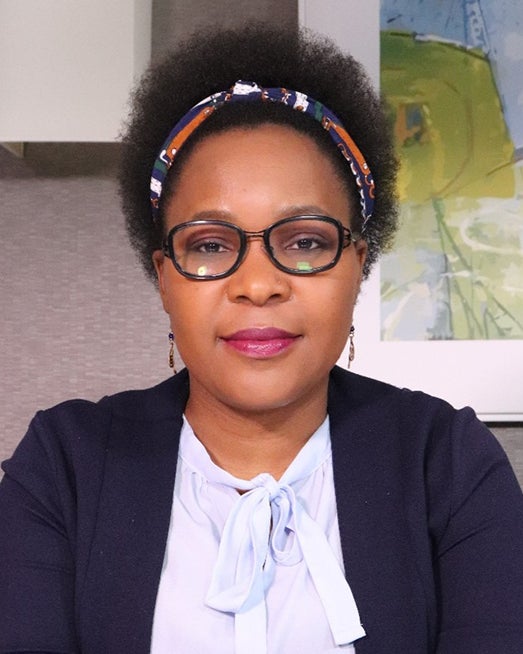Audrey:This is Power of the Streets, a podcast series brought to you by Human Rights Watch about how we speak truth to power. I’m Audrey Kawire Wabwire, based in Nairobi, Kenya.
We’ve been hearing from some of the people driving Africa’s #MeToo movement
In the previous episode, we spoke to Toufah Jallow where she took her fight to the doorstep of former Gambian President, Yahya Jammeh.
In this episode, we take the conversation to Tanzania.
Carol: That word activism in the current context in Tanzania, especially, um, with the current government, it doesn't really represent what I do uh, I would say. So, yes, uh, I am doing activism, but if I had the choice, especially in the Tanzanian context, I wouldn't refer to myself as an activist. Uh, but I would say that the media background, my journalism days are the, you know, the ones that actually instilled that passion in me to advocate for change in my community, in my society, in my country.
Audrey: That's Carol Ndosi from Tanzania. She advocates for social justice and gender equality especially focusing on Africa’s economic progression.
Carol: I did about seven years in media, straight from school, uh, started with, um, radio, um, doing the news and then, um, advanced to the newsroom and did broadcast TV, um, also around news, but also programs around current affairs. So that experience alone, I would say, created that foundation for me, that, um, sense of activism, but I don't really call it activism. I would like to refer to myself as an active citizen.
Audrey: Carol you're an entrepreneur working on women's rights, uh, to access the internet. You also write about, uh, women empowerment and you know how sometimes that phrasing can be problematic. You also addressed in your blog, how, uh, speaking up as a woman sometimes lead to tone policing. When you are being told that you sound bitter when you, um, raise some complaints about, uh, uh, a certain event, and we'll speak more about all these things, but to begin with, let's go all the way to the start.
Carol: I think it was right around the time when I was doing the morning breakfast show. At that time, it was the 101.4 BBC reference in Tanzania called SkyFM. And I think it was from the, the feedback that I had gotten from the listeners and how I voiced my response after that, that made me realize that, ah, you know, Carol, you actually have something to say and people are actually listening to you. So you can use this as a platform. And I remember from then on, I used to take, um, that engagement further and take it to my Facebook page, you know, and continue the conversation there. And take it offline as well. You know, when you meet people, you continue with the debate. So um, doing the, the radio show and that engagement, um, offline and online actually gave me an opportunity to get recruited for another show where I was given a chance to produce and present it. And it was all around, um, current affairs, what was happening in Tanzania, um, socio-political issues, socio-cultural issues. We had, uh, the segment called the expose segment and it was, um, all this brilliant idea and our head of programming at the time. I would say it was, it was the one stepping stone into my activism per se, because it did give me a chance to really dig deep. Um, at some point we really embraced investigative journalism and some issues. So I would say that that's where it began.
Audrey: And now you've come all the way. You're now working to bridge the gender digital divide through your work, um, at Women at Web. Uh, tell me about this work and why it's relevant to African women and in particular women in Tanzania.
Carol: Right so yeah, whenever someone asks me about that, I always, um, have to first admit my embarrassment because I wish that Women at Web was, um, was a movement that was pioneered, you know, from within the country *laughs*. But unfortunately or maybe fortunately, um, it's, it's a project under DW Academy. So they, in 2018, 2017 they identified, um, several professionals working in the areas of digitalization and entrepreneurship, but also around gender equality and women advancement programs. Um, and I was one of those, um, um, professionals who were invited to that workshop and what they did was they presented to us, um, what they thought was a situational analysis of the online participation of women in the East African region. And then the workshop, um, advanced to trying to determine why there was lower participation of women as compared to men and not just participation, but, you know, active and effective participation of these digital platforms.
So from that meeting, we were able to come up with a whole project that would then address the digital gender divide in the East African region through, um, addressing the top um, I would say the top affecting factors
Audrey: One of those things being the ability to connect to online platforms.
Carol: So yes, the skills, the literacy, the knowledge, the know-how for these women to get, um, online.
Audrey: Followed by the affordability factor...
Carol: … which is mostly around lobbying with the telecoms, you know, to really set up the infrastructure and the relevant, um, and respective ministry and so on. But lastly, it's also about the appetite because one of the, um, when we went out to the streets in Machakos, um, during that same workshop, what we found out was women were, um, not effectively and actively participating online because they did not find content that was relevant to their interest or, you know, that appealed to their interests.
Audrey: Through a survey conducted during the workshop, they found that most women chose to stay away from online platforms in their personal capacity or even in a business or career capacity.
Carol: That's how we actually arrived at, um, cyberbullying and online gender-based violence being one of the major factors that is affecting, um, active participation of women, especially in this African region. Uh, because through that, um, survey that we did, most of the women were saying, you know, I try to get online. I'm an entrepreneur. Um, and the minute I went on and I started posting about my business, this is what I went through. Um, another one said I'm a professional, you know, I believe in voicing out my, you know, opinion about different matters, but the minute I did that people started attacking me. You know, we met some women journalists who said it was quite hard for them to embrace the online platforms as opposed to their male counterparts, because they were then subjected to, um, body shaming and all sorts of, um, you know harassments.
So from 2017 to now, our focus has been around, um, promoting and encouraging online participation of women by first providing them with the capacity. So, um, the ability, the skills, we train them in digital literacy and digital citizenship, but then we also realize that we can't just tell them to get online if we don't have safe online spaces. So our work has also been majorly, um, around building safe, online communities and advocating for, um, um, safe usage of the internet and people really getting to know their digital rights and the additional responsibilities as digital active citizens. Yeah.
Audrey: What does that mean though? How do you create a safe space? Because I do understand what many of your respondents were saying that when I get online and talk, you know, there's all these people coming to attack me. I don't even know why they're doing that. So how then... are you training the women or who exactly is responsible for the safe space here?
Carol: Right. So, well, we, we do realize that first of all, it takes both the men and women, um, to create a safe online community, but because our target is the woman we have, uh, prioritize that particular target group. So what we are doing is yes, we are training them with the digital skills, but not just digital skills, not just how to navigate, you know, on Twitter, on Facebook or on these, um, social, uh, popular social platforms, but also the know how to, um, share, um, information in a secure way to protect the information as well. You know, so digital security is a major component of our trainings. Um, but also in the context of protecting themselves against, um, cyber bullying and online gender based violence, we do equip them with the, um, sort of like navigation skill and survival, uh, what we call a survival guide kits on how one can survive um, the internet is quite, it's quite, um, uh, terrifying when you put it like that, but that's the reality. So we, we do teach them about how, um, one should be aware of the digital footprint, um, what you leave on the internet, um, the, the kind of content, the kind of accounts that you expose yourself to, but also when you are subjected to any kind of harassment, what kind of steps that you can take. We've also been working with, um, digital platforms like Facebook East Africa, but also the respective authorities, like the Tanzanian police force, because we also realize that, for example, in the Tanzanian context, um, when it comes to online, gender-based violence, as much as we have the cyber crime law, the law still looks at, um, in the, in the instance of what we call revenge pornography or nonconsensual, um, intimate images. The law still looks at the victim, the woman as one of the offenders, because, uh, the law says that anyone who has taken part in, um, producing or publicizing, um, intimate images is also, um, you know, legally liable.
Audrey: Really?
Carol: Yes, yes, yes, yes.
Audrey: So if my photo is posted then by someone else, then.
Carol: Yeah.
Audrey: Oh God.
Carol: Yeah. So the police say, how did you allow that to happen? Even if it was, you know, in an intimate relationship between you and your lover.
Audrey: But.
Carol: Exactly. Exactly. So a lot of our work has also been around changing the mindset of the Tanzanian police force, but also we have a lot of work. Um, I had on, um, lobbying with the legislators to really, uh, look at this law and come up with a section that could be used specifically to eliminate online gender based violence in that particular context where the law does not look at the victim as also the offender.
Yeah. So there's, it's, it's quite a lot of work, but we do believe that it's the mindset, um, and sort of like sensitization that needs to go into what online gender based violence is and how that has been manifested from how we have positioned the woman in our society and what, um, we, as a society look at what can be done to a woman and what, you know, what is justifiable to be done to a woman or what we expect her to be.
Audrey: Yeah, that's a lot, but I know your training program is really wide and deep and you know, you're doing a lot to cover access to internet and being safe online. But if you could give me one tip, so if I'm being trolled or someone I know is being trolled, what's one thing they can do to either stay safe or stop the trolling.
Carol: Um, so I'll give you, I'll give you this from the response, from the experience and, um, the feedback that we've gotten with our, um, sort of like groups that we work with. And the first thing we try to tell them is the first thing you should be concerned about is your psychosocial safety and the mental wellness aspect, because a lot of them. Um, because of what they went through, ended up dropping entirely up from the internet, you know, deleting their accounts or coming back with aliases or parodies. The first option we always give people is you can always just back off and ignore, you know, you don't have to respond. Um, and after that for your own mental wellness, because what will happen is it will go viral when you respond to that kind of content. What happens is it goes viral. So unless you're ready to face that, unless you're ready to really, um, dance to that music. What we tell people is just take a few minutes, take a few hours, just think about it, think about the, you know, um, how you would like to address it. And while you're thinking about that, remember as a digital citizen, depending on that particular platform, you always have an alternative to, um, an, an option to report that account. Okay. You can always unfollow that account. You can always mute any words that are associated with that attack. Um, and if you feel that is also not enough, what we also advise them is because legally, um, at least with the Tanzanian police force, when you go and report this kind of crime, they want, um, they also want proof that you have also tried to do something. So even when you're reporting, you should, first of all, take the screenshots of these accounts in a way that, um, they display authenticity that even the police look at it, they're like, okay, it was not photo-shopped. And then, um, try to take screenshots of how you try to report their account as well, because the police, the first question is they asked you, like, did you report it? You know, what action did you also take?
Audrey: Another challenge that the Carol and women at web have faced when encouraging women to report these accounts, is the language barrier that prohibits social media platforms from interpreting abusive content written in another language that is not English.
Carol: When most of this content gets reported, um, especially in the Tanzanian context, um, it's in Swahili. So unfortunately, yeah, with the digital platforms they don't have, I would, I would like to believe they don't have enough content regulators and moderators. Like for example, Twitter or Instagram, because what happens is a lot of this content is actually against their community-based guidelines. So when people report the accounts, they don't get taken down as opposed to when it was, it is in English. You know?
Audrey: Aha.
Um, but apart from that, what we also try to do is to offer what we call the peer to peer, um, emotional support. Um, we're also going to be launching a helpline this year because we also realize that, um, one of the major consequences from this, um, incidents is most of these young ladies end up committing suicide because they feel that they're life…
Audrey: Oh, that's horrible.
Carol: Exactly. Like we've had three suicide, um, incidents last year. Um, we've had 15 attempts. So all these young ladies at the end of the day, what, what, um, as much as we offer a sort of like, um, the guidance or legal guidance, like legal advice, like you can go into this and this, we also have to invest a lot in there, you know, um, mental wellness and just offering them that psychosocial support and, um, that emotional support and letting them know that, you know, they're not alone. And, uh, so we had this group launched last year called Jeshi la Dada and basically what they do...
Audrey: Could you translate what that means? Jeshi la Dada to someone listening, who doesn't speak Kiswahili
Carol: Right, Jeshi la Dada is a sisters army basically. And, um, the group, uh, uh, came about from one of our focus group discussions where we had with this young females from the age of 18 to 35, and we asked them again, like, what do they need? And they said that, I think I need a sisters keeper when something like that is happening. Uh, we feel that, you know, I feel that I'm alone. So I wish I had people who could be on my side, you know, who would say, I see you, I hear you, you know, and I'm here with you. You don't necessarily have to go and attack these people who are attacking me, but, you know, just, just be there for me. So that was the essence of the sisters army, the Jeshi la Dada, but they also went as far as mobilizing themselves and doing what they call an online patrol, um, voluntary by the way. And, um, they've been patrolling, um, um, the social media platforms and looking for abusive accounts and reporting them. And, um, they've had 53 or 53 accounts that were taken down across Twitter, Instagram and Facebook as well. So they've been doing tremendous work and this is all on a voluntary basis.
Audrey: Okay. That's super impressive work. And I'm just wondering with your activism. If it is activism, which is really bold and being such a well-known feminist speaking out against violence against women and girls, especially online. How do your friends and family respond to your work?
Carol: *long sigh* Okay, yeah. So
Audrey: *laughs* That's a very long sigh. Come on, Carol.
Carol: Yeah. It's a long sigh because it's sort of like reminds me of what I went through about three years ago. So, and that's the reason why I don't, I don't like that, that name because the minute, the minute my government, um, decided what activism is. I was, uh, sort of like, um, I wouldn't say, yeah, I was actually a victim of, of what the current perception is. And because of that, my business suffered because of my, you know, me voicing out or me being vocal about whatever that was happening in the country. Um, and so because of that, um, like I went through a very hard time and because of that, my family went through a very hard time. I made my mom stay up most of the nights, you know, praying for me, praying that I would not get detained, praying that I would not get a money laundering case. *both laugh*
So it was quite, quite a trying two years. And I think that was a tipping point for me, because what I also came to realize was, you know, the, the different kinds of activism and, um, activism can also work in different ways. So the way I look at it right now is my activism is in development programs and how I can support women and youth to really advance, you know, um, socioeconomically and how I contribute to that is through these development programs. And it's quite a different direction from what I used to do four years ago, when, you know, where we take it to this, um, public platforms and call out the government or whatever authorities and say, you know, you should be doing this and this. I'm not saying that that doesn't work, but what I've also realized that we can actually go beyond advocacy.
So it was hard for them. It was really hard for my family, because at some point it did affect them really hard. Um, but we managed to work through it. Um, and right now I think they're only left with the yeah the whole feminist cause right now say any, any woman in Tanzania who speaks out is either, um, bitter, because she's not married, which I'm not. So that's always, that's always the, that's always the point that they hit me with. Like, you shouldn't be talking, you're not even married.
Audrey: So if, if someone is married, that's when they can talk.
Carol: Apparently you see again, we're going back to the position of the woman in the society, um, in the, in the popular context for a woman to, to, I suppose, to have that sort of respect from the community, she has to be married. So I'm a mother of two and I'm not married. And to many of the people that I try to speak with, I have not, um, justified my, I, I've not sort of like gained my right foot. I'm not even sure how to put it, but yeah, for some reason I'm not, I don't deserve to be speaking about what I am speaking, you know.
Audrey: Yeah, you do a lot of work and it's, it's *laughs* very, very...
Carol: Yeah, I should, I should be writing right now. Like I haven't, I haven't been able to write for the past four months, sort of like had an writer's block. I'm blaming it on COVID. Yes. Yeah.
Audrey: Yes its a pandemic. Trust me. It is. So, but how are you taking care of yourself though? You know, how, how, how do you rest after you do such heavy work and face all these things you face online, how do you go back and take care of yourself?
Carol: Uh, I think detox is very important. Um, like it's a very important aspect of my life. I try to do that cause it can get really overwhelming, um, working in the, in the, in these you know, in this areas, at some point you, you get so immersed in it and you really take over people's experiences and their challenges and what they're going through. Um, so yeah, so how I deal with it, Oh my God. It's, it's, it's pace, you know, how to pace yourself. Prioritizing like what exactly I should be focusing on and really taking that time off and saying, you know what, right now I don't have the mental bandwidth. So I'm just going to take a breather and come back to this. I also do. I work out a lot for the past year and a half. I've been working out a lot.
Audrey: Where do you think the movement is going in the next five years, the gender based violence movement, uhm, the digital rights movement. Where do you see this movement going?
Carol: I think, um, well towards inclusive economies, especially right now, as we're seeing the pandemic, um, well, it's coming back, we're seeing the second wave right now. So the digital economy and digital societies, you know, there's really going to take off. So, um, I believe the #MeToo movement offline and online will continue because, um, unfortunately with the pandemic, we've also seen a lot of, uh, what do you call it? An influx of digital citizens who just keep on coming into these, um, online spaces with no, um, knowledge of their digital rights or their digital responsibilities, or even the, the law as it is, or even the community, um, you know, guidelines from these platforms. So there's quite a lot of, uh, a lot of work that I see will have to continue. Um, in that particular context, in the spirit of digital inclusion, there's going to be a lot of work. So the movement is going to just get stronger. I see a lot of other, um, a lot of other stakeholders getting on board. Like just the other day, we, we, uh, partnered up with UN Women Tanzania who obviously have the mandate to eliminate gender based violence as an international organization. And they are now embracing that as, you know, as a major component in their programs. And we have all other, um, all these other organizations, as well as the respective authorities like this year, we're going to be working with the police. We're going to be working with, um, um, all these other partners. I see the movement getting stronger. And like we said, it's like we say, in, in, at Women at Web, offline should mirror online and vice versa. So even in the context of the #MeToo movement, um, what we have seen is now that the #MeToo movement is now, you know, gone online as well.
Audrey: Yes. And, um, Carol, can you tell me where people can find you online, all the amazing work that you're doing?
Carol: Right. So I'm on Instagram, um, Twitter yeah and Instagram and Twitter you can get me at Carol Ndosi, that's C-A-R-O-L N-D-O-S-I uh, you can also find me on medium. Um, I write a couple of things in there as well, but @CarolNdosi, um, on Facebook as well, Carol Moses Ndosi, you can also find me on LinkedIn, the same name Carol Ndosi.
Audrey: Okay, great. And on your social media pages, I know you can find all the work she does with the festival you host. Um...
Carol: Yeah, we didn't talk about that.
Audrey: Tell me about the festival.
Carol: Right. So I'm an entrepreneur as well. I started my events management company in 2011, um, after working for three years, um, as the head of events in another company. So yeah, I've been doing that since 2011. We are 10 years old this year and we have been running what is now the largest barbecue festival in East and Central Africa. Um, so yeah, it's called the Nyamachoma festival. It's Swahili yeah, but it's in English it's just the barbecue festival.
Audrey: Okay. I think Nyamachoma festival sounds better.
Carol: Right? There's a zing to it *laughs* there is a zing to it. Yeah.
Audrey: You have been listening to Power of the Streets, a podcast series brought to you by Human Rights Watch. I’m Audrey Kawire Wabwire.
That’s the end of our show. Check out our show notes for more about Carol and her work in the Women at Web organization as well as all her other businesses.
In the next episode we take the conversation to South Africa.
To learn more about Human Rights Watch visit HRW.org. Follow us on Twitter @HRW and Instagram @humanrightswatch for updates about the show.
Join the conversation using the #PowerOfTheStreets and share your thoughts with Carol or any of our other guests, and you can tell us how you’re speaking truth to power.
Our producer is Andisiwe May and this is a Volume production.
The main theme song Au Revoir was produced by Young OG Beats.
Till next time, thank you for listening.
